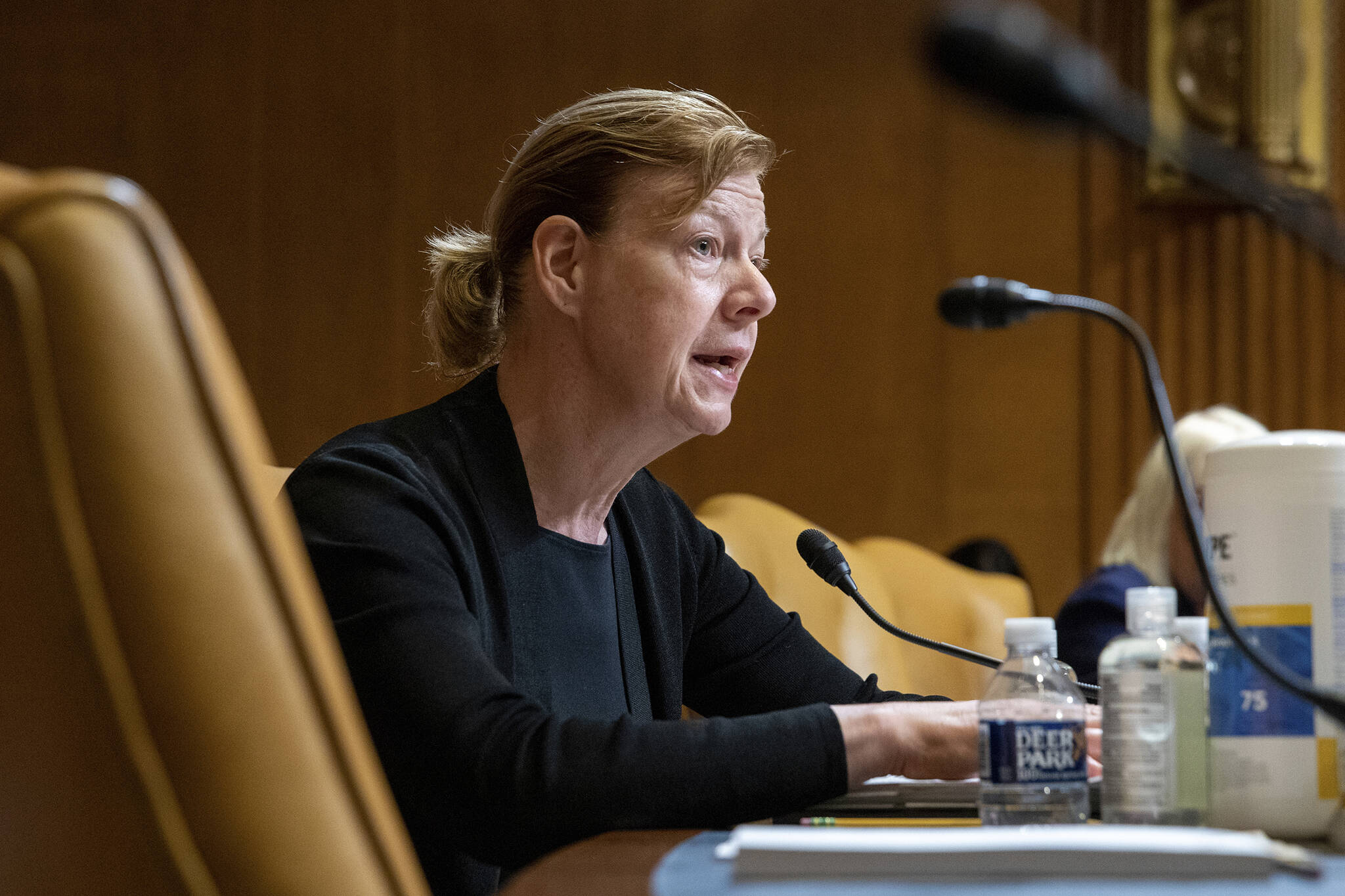WASHINGTON — Democrats are punting a vote to protect same-sex and interracial marriages until after the November midterm elections, pulling back just days after Majority Leader Chuck Schumer vowed to put the Senate on the record on the issue “in the coming weeks.”
The delay was requested by key senators who have been negotiating changes to the legislation and comes at a time when many Republicans have been signaling opposition.
Wisconsin Democratic Sen. Tammy Baldwin, the lead champion of the bill, had predicted they would be able to secure the 10 Republican votes needed to break a filibuster and push it to passage. But hopes dimmed in recent days as some Republicans raised concerns about whether the bill would protect the rights of religious institutions, business owners or others who oppose same-sex marriage.
The decision adds to the uncertainty facing the legislation, as it gives interest groups and other lawmakers opposing the bill more time to rally Republicans against it. But supporters hope that by pushing the vote back, they will relieve election-year pressure from some conservative voters and persuade more Republicans to support the legislation.
“We’ve asked Leader Schumer for additional time and we appreciate he has agreed,” Baldwin said in a statement, along with other members of the bipartisan group that is negotiating the bill. “We are confident that when our legislation comes to the Senate floor for a vote, we will have the bipartisan support to pass the bill.”
The statement from Baldwin, Democratic Sen. Kyrsten Sinema of Arizona and Republican Sens. Susan Collins of Maine, Rob Portman of Ohio and Thom Tillis of North Carolina came after a meeting with Schumer, who had been considering a vote as soon as next week.
A spokesman for Schumer said he is “100 percent committed” to holding a vote.
“Leader Schumer will not give up and will hold the bipartisan group to their promise that the votes to pass this marriage equality legislation will be there after the election,” said Schumer spokesman Justin Goodman.
Democrats and the small group of Republicans have moved to safeguard same-sex marriage following the Supreme Court decision over the summer that overturned Roe v. Wade and the federal right to an abortion. Lawmakers fear the court’s ruling, and a concurring opinion from Justice Clarence Thomas, indicate that an earlier high court decision protecting same-sex marriage could come under threat.
“We all want to pass this quickly,” Schumer said last week. “I hope there will be 10 Republicans to support it.”
The Senate push for the historic vote — and the openness by some Republicans to back it in an election year — reflects a large shift on the issue since the Supreme Court’s 2015 Obergefell v. Hodges decision legalizing gay marriage nationwide. Polling shows widespread public support for allowing such unions.
The bipartisan group has been working closely with the GOP senators who are open to the legislation but have religious liberty concerns. They finalized an amendment this week that would clarify that the legislation does not affect the rights of such private individuals or businesses — rights that are already enshrined in law. The legislation requires the federal government and states to recognize all marriages that were legal where they were performed, along with interracial marriages.
“Through bipartisan collaboration, we’ve crafted commonsense language that respects religious liberty and Americans’ diverse beliefs, while upholding our view that marriage embodies the highest ideals of love, devotion, and family,” the group said in the statement.
But some Republicans who had wavered on the bill were not yet on board.
Responding to the group’s statement Thursday, the White House emphasized again that the administration was leaving the mechanics of the legislation — such as the timing of a vote — to the Senate.
“We believe the Senate should find consensus just as the American people have,” White House press secretary Karine Jean-Pierre said Thursday.
The bill protecting same-sex marriage cleared the House in a July vote with the support of 47 Republicans — a larger than expected number that gave the measure a boost in the Senate. But as the weeks went on, more Republicans raised religious liberty issues.
Another proposed tweak to the bill would make clear that a marriage is between two people, an effort to ward off some far-right criticism that the legislation could endorse polygamy.
It’s not clear how many Republicans would support the bill. In addition to Collins, Portman and Tillis, a fourth GOP senator, Alaska Sen. Lisa Murkowski, has supported same-sex marriage in the past. Wisconsin Sen. Ron Johnson, who is up for reelection this year, has said he doesn’t see a “reason to oppose it” but has talked on both sides of the issue in recent weeks.
Most Republicans opposing the legislation have said it is simply unnecessary because the court ruling still stands. But others have gone further.
One group that has been opposed, the conservative Alliance Defending Freedom, has pushed back on the legislation.
“In the grander scheme, the Respect for Marriage Act is a way of putting an exclamation mark on the sexual revolution and its ideology,” wrote Ryan Womack, who works for the group, in a blog posted on its website.

